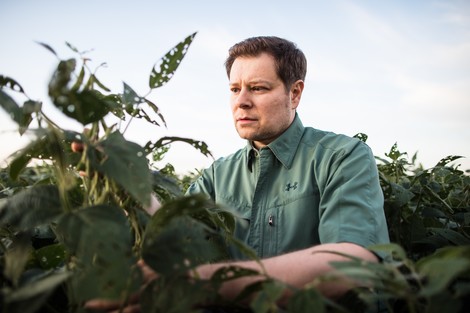Your podcast discovery platform
Curious minds select the most fascinating podcasts from around the world. Discover hand-piqd audio recommendations on your favorite topics.

piqer for: Climate and Environment Global finds
Andrea is a writer and researcher based out of Chicago. Andrea has a Bachelor's degree in environmental science from The Ohio State University and a Master's in Environmental Planning and Management at National Taiwan University, where she specialized in climate adaptation and urbanization. She writes for TaiwaneseAmerican.org, and sends out a biweekly newsletter which includes articles on politics, environment, identity, and intersections of race, class, and gender (http://eepurl.com/bPv-F5).
The Great Nutrient Collapse: How Climate Change Is Affecting Our Food
One of the few things climate change is supposed to be good for is plant growth, right? But a better question might be, is that plant growth actually good? Irakli Loladze, a mathematician, began thinking about this problem as a graduate student while studying zooplankton eating faster-growing algae, and found that zooplankton struggled to survive on that algae because it was less nutritious. "By speeding up their growth, the researchers had essentially turned the algae into junk food. The zooplankton had plenty to eat, but their food was less nutritious, and so they were starving." Years later, it seems that that phenomenon is echoed in humans and climate-accelerated growth in plants.
Food is definitely becoming less nutritious, but most of that effect has previously been attributed to selective breeding by humans. Loladze thinks that humanity's role in changing the atmosphere may also be a part of the problem. "Rising CO2 revs up photosynthesis, the process that helps plants transform sunlight to food. This makes plants grow, but it also leads them to pack in more carbohydrates like glucose at the expense of other nutrients that we depend on, like protein, iron and zinc." This could have devastating impacts on health across the globe. But for years, Loladze struggled with finding supportive research institutions and funding sources to even study the problem, as it straddled various traditional disciplinary lines. Finally, some of this research is coming into the light.
In a recent study, it was found that "across nearly 130 varieties of plants and more than 15,000 samples collected from experiments over the past three decades, the overall concentration of minerals like calcium, magnesium, potassium, zinc and iron had dropped by 8 percent on average. The ratio of carbohydrates to minerals was going up. The plants, like the algae, were becoming junk food." And when our food becomes junk food, what will become of us?
